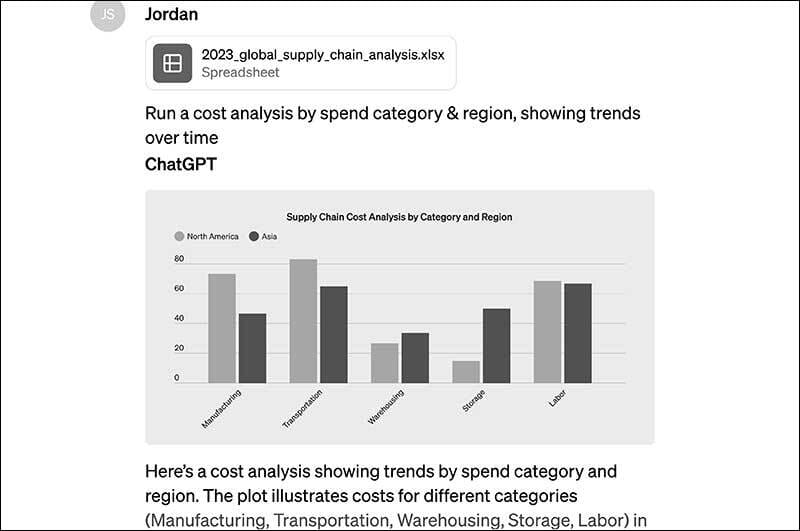- AI Trailblazers
- Posts
- Navigating AI: This Week's Business Highlights #4
Navigating AI: This Week's Business Highlights #4

Welcome to the AI Trailblazers Newsletter. Each week, we summarize the latest in AI business news and share its implications for enterprises, careers, and society. Additionally, we feature AI Trailblazer highlights.
We’re happy to share that we’ll be hosting a virtual dialogue on the theme, “What should I do with AI right now” on May 1st at 12:00pm EST. Register to join.
Are you ready for ChatGPT Enterprise?

OpenAI Is pushing their ChatGPT for the Enterprise product aggressively. It is one way to accelerate adoption of GenerativeAI and drive productivity increases in a safe manner. Reuters and Pymnts.com had the story. Here are highlights:
Global Engagement: OpenAI's CEO, Sam Altman, conducted meetings in San Francisco, New York, and London, engaging with over 100 executives from Fortune 500 companies across various sectors like finance, healthcare, and energy to promote OpenAI's AI services.
Product Demonstrations and Applications: During these meetings, demonstrations of OpenAI's advanced technologies including ChatGPT Enterprise, AI service APIs, and new text-to-video models were showcased, highlighting their potential applications in areas such as call center management and translation.
Data Privacy Commitment: OpenAI assured corporate executives that data from ChatGPT Enterprise customers would not be used to train its AI models, emphasizing privacy and security in its enterprise offerings.
Market Penetration and Expansion: ChatGPT Enterprise, launched in August, has been adopted by over 80% of Fortune 500 companies, with 260 businesses signing up within its first four months. This service offers enhanced features focused on improving productivity and creativity for corporate users.
AI Trailblazer Takeaways: A study by the Corporate Board reveals that over half of corporate employees regularly use GenerativeAI for daily tasks, often without their employers' awareness. Additionally, OpenAI reports that 80% of employees in Fortune 500 companies have personal ChatGPT accounts.
This situation poses risks. Whether it's OpenAI, Microsoft, or another provider, corporations need to adopt these tools not only for their substantial productivity benefits but also to prevent confidential data leaks and misuse for training if employees continue to bypass established protocols.
Ted2024 and $100 billion AI investments

Demis Hassabis of Google speaks at Ted2024
This week at TED 2024 several AI leaders spoke on how AI is going to transform the world for the better. That’s not surprising, since the more their technologies are used with fewer regulatory constraints, the more their businesses set to gain. Axios, Quartz and Bloomberg had the story. Here are the highlights:
Massive AI Investment by Google: Google's CEO of DeepMind, Demis Hassabis, shared that the company plans to invest more than $100 billion in AI technology. This investment aims to advance Google's capabilities in the pursuit of artificial general intelligence (AGI), which seeks to achieve human-level knowledge across various tasks. This would include large-scale infrastructure to host supercomputers comprising millions of chips.
Digital Species joining us: Mustafa Suleyman, Hassabis' co-founder at DeepMind and now the top AI executive at Microsoft, discussed how we should think of AI as “a new kind of digital species.” If you read his bestseller, The Coming Wave, you wouldn’t find this too surprising. The often-unspoken point is that we will need to create space in our world for these digital species.
Free Medicine and Education: Meanwhile, Vinod Khosla, the storied venture capitalist from Silicon Valley, spoke of how expertise will be near free. He discussed how we will have free AI doctors for every person and AI tutors for every child 24/7. Healthcare and Education are both huge sectors of our economy, it is hard to fathom what changes like these will bring to the economy.
The Moloch Trap: While largely positive in nature, some speakers addressed the Moloch Trap where intense competition leads to individuals taking actions that are beneficial for themselves but ultimately harm society. Researcher Helen Toner, who departed from OpenAI’s board late last year, was among the more concerned voices urging AI companies to open themselves to external audits.
AI Trailblazer Takeaways: To maximize the enormous benefits of the AI Era while limiting the equally huge risks means focusing on cross-company and cross-industry collaboration. It may sound simple, but it isn’t. The companies that form the right alliances and learn together, will win in the long run. And hopefully, they will do less (if any) damage to society in the process.
AI has a serious measurement problem

There’s an important question in the AI Era that most people have been avoiding. It is difficult to evaluate AI tools, which also means it is difficult to fully understand their capabilities. That’s concerning. The New York Times has the story. Highlights below.
Lack of Standard Testing for AI Tools: Unlike other industries, AI companies like those producing ChatGPT, Gemini, and Claude are not required to undergo standardized testing before their products are released. This absence of regulation results in reliance on the companies' own, often vague descriptions of their products' capabilities.
Inadequate Evaluation Metrics: The metrics currently used to evaluate AI tools, such as the Massive Multitask Language Understanding (MMLU) test, are viewed skeptically by experts. These tests are intended to gauge general intelligence but may not comprehensively measure an AI's full range of abilities or potential risks.
Challenges in Comparing AI Performance: Due to frequent updates and the lack of detailed information, even AI experts find it difficult to track or compare the performance and functionalities of different AI products consistently, making it challenging for users to choose the appropriate tool for specific tasks.
Call for Improved Testing and Transparency: There is a growing demand for more rigorous and independent testing of AI systems, as well as greater transparency from AI companies about their products' capabilities and limitations. This would help users, regulators, and developers make more informed decisions about AI technologies.
AI Trailblazer Takeaways: In today's world, the Turing Test is no longer sufficient to assess the capabilities of AI tools. New tests are necessary, and AI companies must disclose more about their tools to enable proper auditing. Without this, businesses will struggle to select the right tools for advanced applications. Additionally, without a clear understanding of these tools' capabilities, society may not be adequately prepared for the upcoming transformations in the AI Era.
What is AI Trailblazers?
AI Trailblazers is a vibrant platform dedicated to uniting marketers, technologists, entrepreneurs, and venture capitalists at the forefront of artificial intelligence (AI). We launched at CES in partnership with The New York Times and hosted our members for an evening of AI programming at SXSW. If you’d like to nominate someone to join the community, please invite them to fill in this form.
We’re happy to share that we’ll be hosting a virtual dialogue on the theme, “What should I do with AI right now” on May 1st at 12:00pm EST. Register to join.
Quote of the Week
If AI delivers, then the next decade will be the most productive in human history. Link.
Links of the week
The AI Index Report - Measuring Trends in AI (Stanford University)
Meta’s battle with ChatGPT begins now (The Verge)
AI Beginning to be Practical, GE CMO (Digiday)
Amazon CEO touts AI in annual shareholder letter (Seattle Times)
